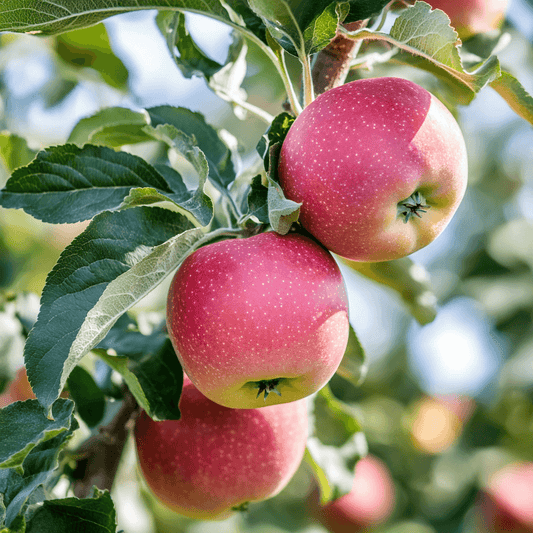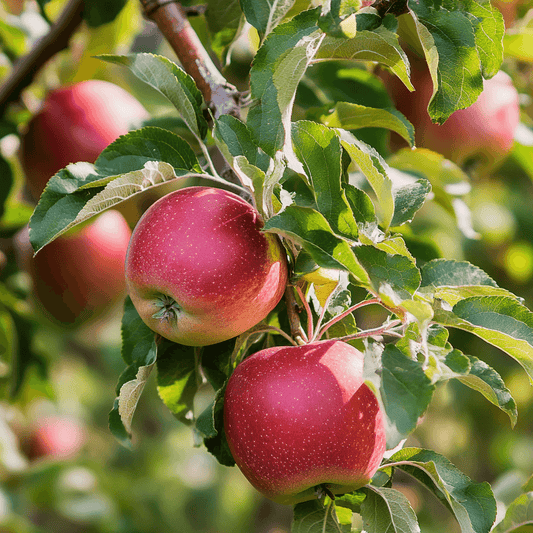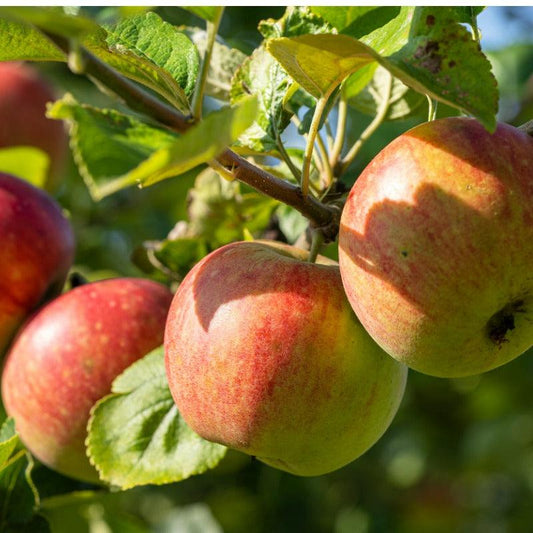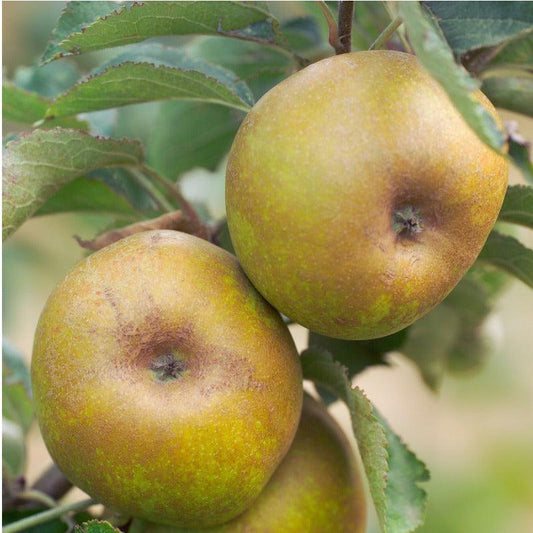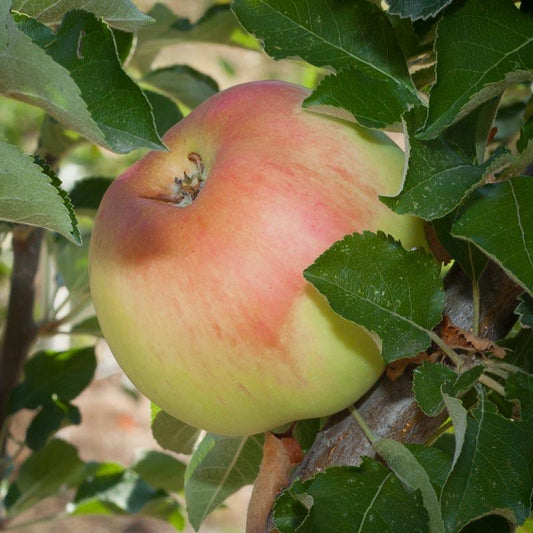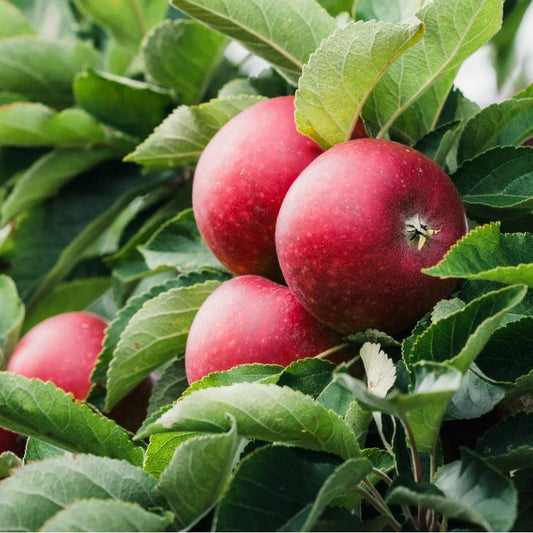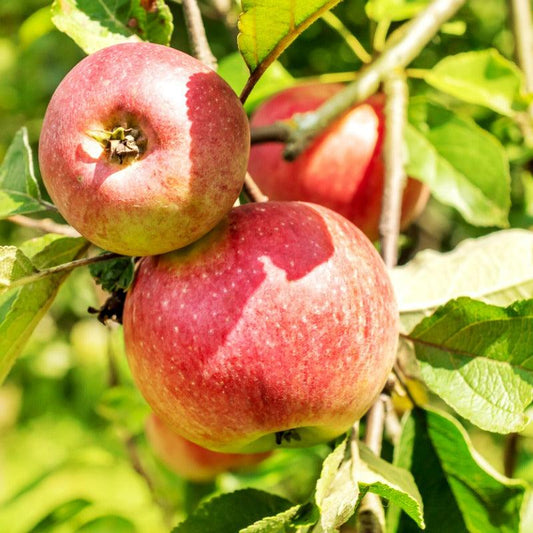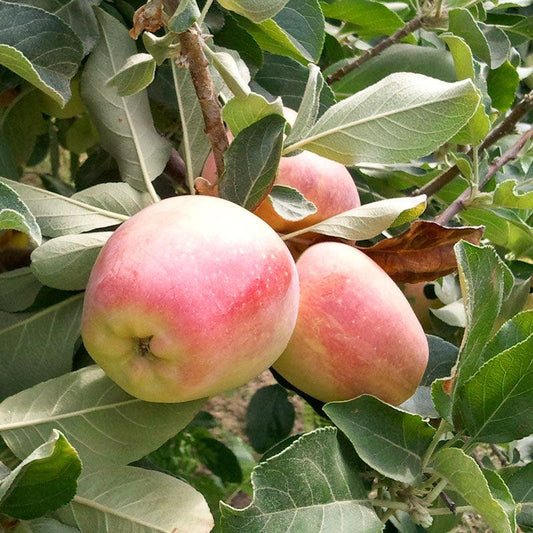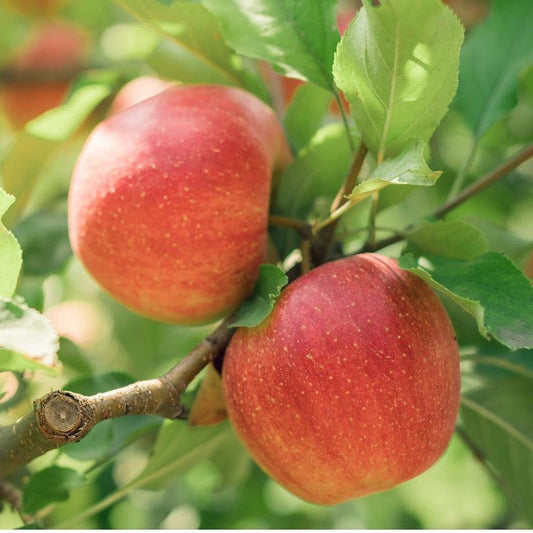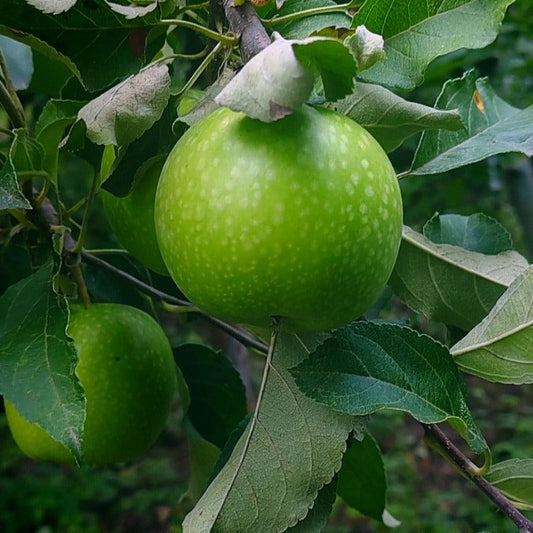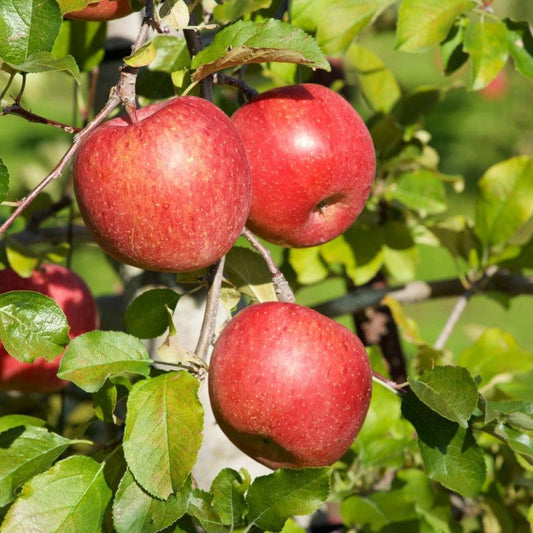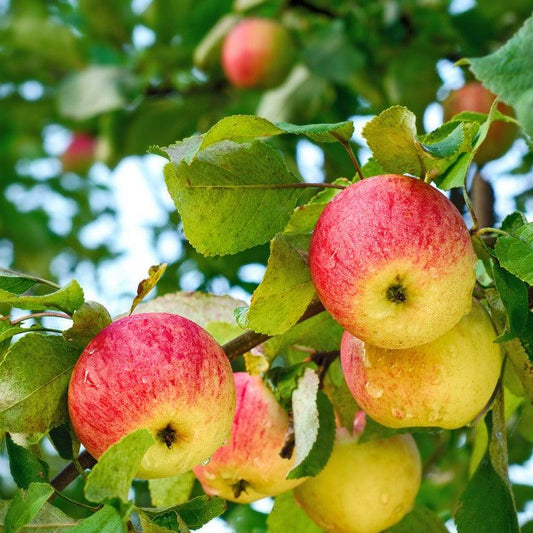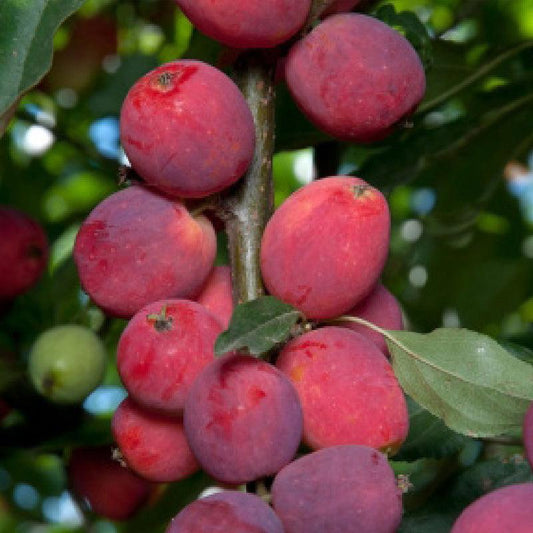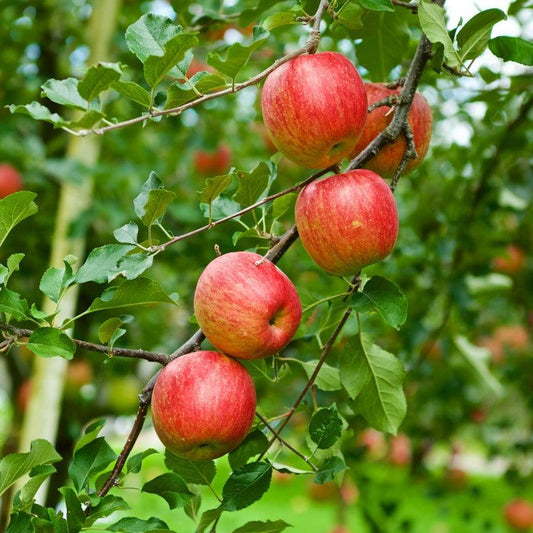Collection: Grow crisp, delicious apples from easy-to-plant bare root trees
Browse one of the widest selections of bare root apple trees, ideal for both backyard gardeners and professional orchardists. Our bare root fruit trees ship dormant with healthy, moist roots, ensuring a strong start and rapid establishment.
With proper care, these bare root apple trees will bear fruit in 2 to 5 years—producing fragrant blossoms in spring and a reliable harvest in fall.
Growing Conditions for Bare Root Apple Trees
To help your root apple trees thrive, plant them in:
- Full sun (6–8 hours daily)
- Well-drained soil
- Locations with good air circulation to reduce disease risk
These conditions promote strong root development, healthier foliage, and higher fruit quality.
Benefits of Planting Bare Root Trees
-
Fast establishment: Bare root trees adapt quickly to their new environment
-
Cost-effective: Easier to ship and more affordable than potted trees
-
Wider selection: Access to a diverse range of apple variety options
-
Cross pollination: Plant compatible trees for improved fruit set and successfully pollinated blooms
Tree Sizes and Rootstocks
We offer both semi dwarf and dwarf apple trees, grafted onto reliable dwarf rootstocks such as M-111 and Geneva 935:
-
Dwarf apple trees: 8–15 feet tall, great for compact spaces
-
Semi-dwarf trees: Grow 20–30 feet, ideal for larger areas
These bare root fruit trees are perfect for home orchard setups or high-density plantings.
How to Plant and Prune Apple Trees
- Planting apple trees in late winter or early spring ensures optimal root development
- Water thoroughly and mulch to retain soil moisture
- Prune apple trees annually to shape the canopy and improve air circulation
For step-by-step guidance, see our Fruit Tree Growing Guide.
Pollination and Fruit Production
Most apple trees are not self-fertile and require cross pollination from a compatible variety. Check for matching pollination groups and bloom times to ensure your trees are successfully pollinated.
Expect bare root apple trees to bear fruit within 4–5 years, depending on the variety and growing conditions. Multi-grafted trees like Low Chill Apple 4-in-1 are excellent for limited space and built-in pollination.
Popular Apple Tree Varieties
Our selection of bare root apple trees for sale includes:
Each bare root apple comes with planting instructions and is adapted for USDA Zones 3–10.
Why Choose Our Bare Root Fruit Trees
- High-quality, cold-hardy stock inspected before shipment
- Varieties compatible with a wide range of climates and chill hours
- Easy ordering and reliable shipping from our online store
- Expert planting and care resources for growing your bare root trees
Whether you're planting a single tree or establishing a full home orchard, our bare root fruit trees are an excellent investment in long-term fruit production.
Additional Resources
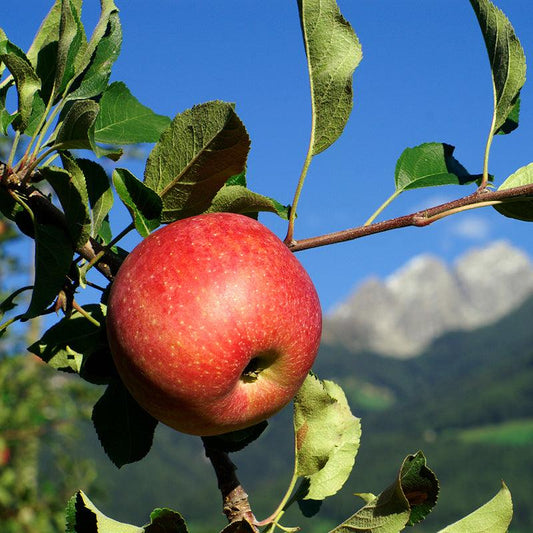 Sold out
Sold out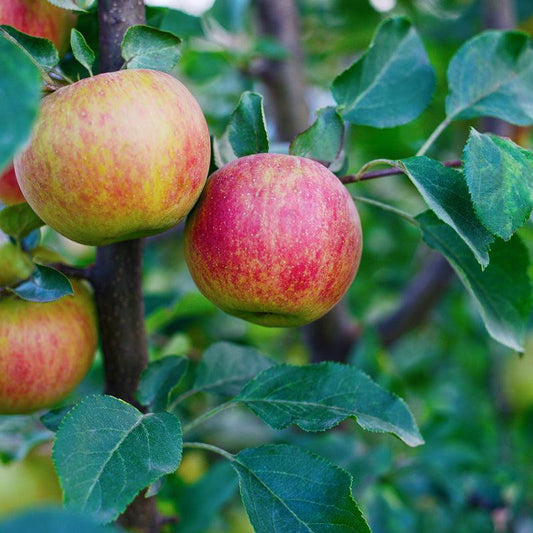 Sold out
Sold out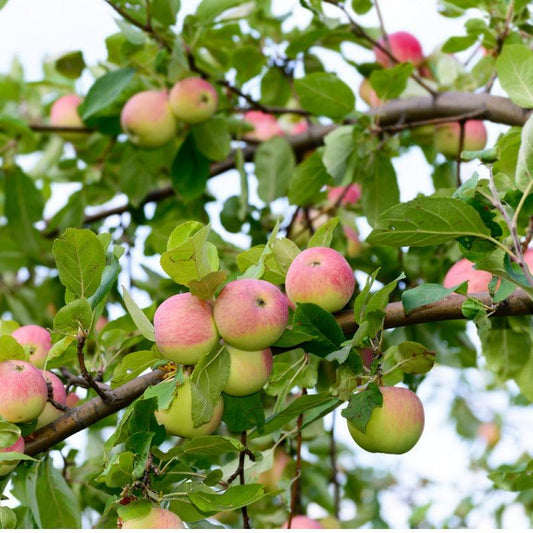 Sold out
Sold out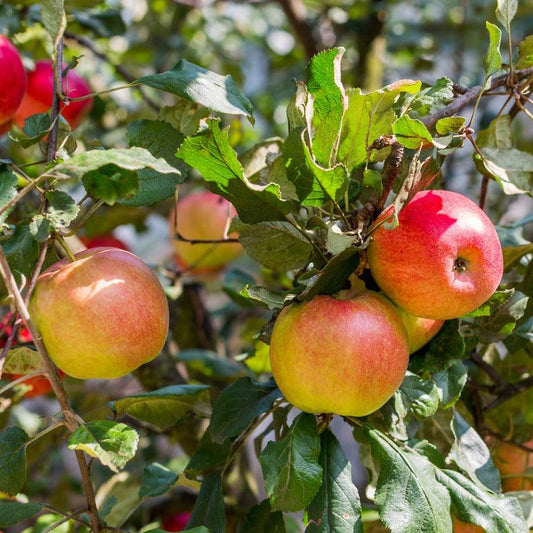 Sold out
Sold out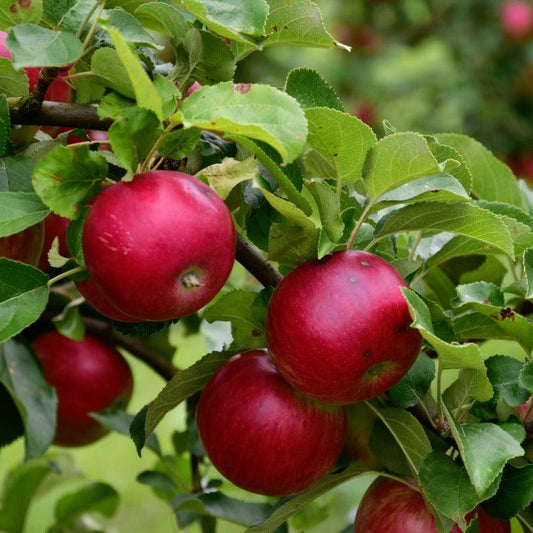 Sold out
Sold out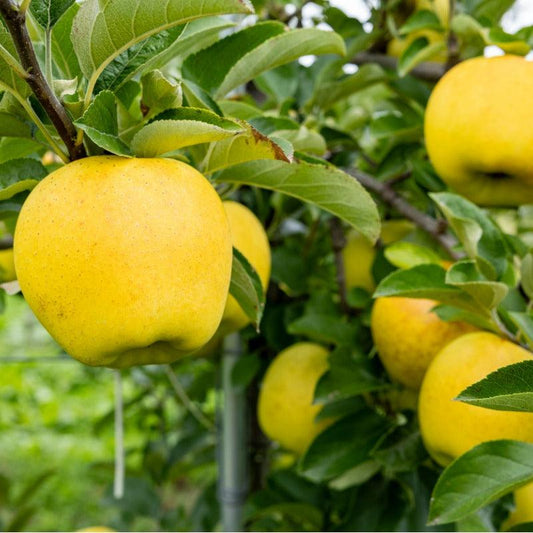 Sold out
Sold out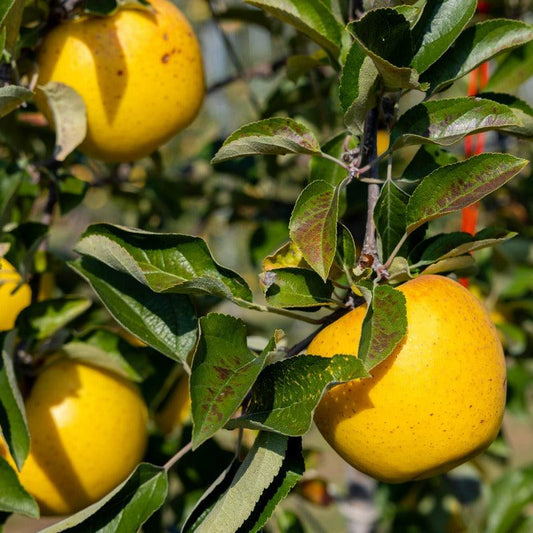 Sold out
Sold out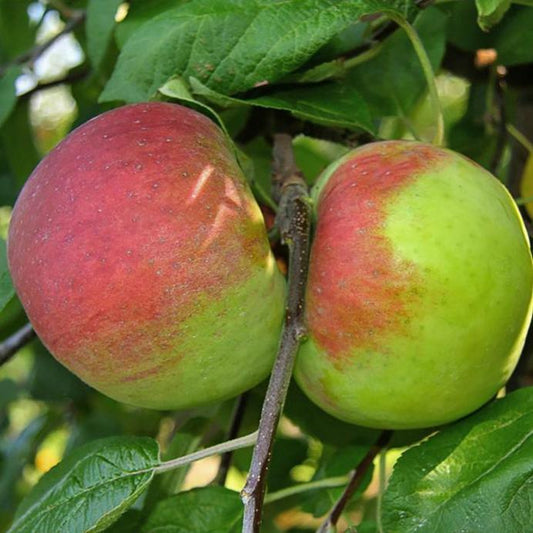 Sold out
Sold out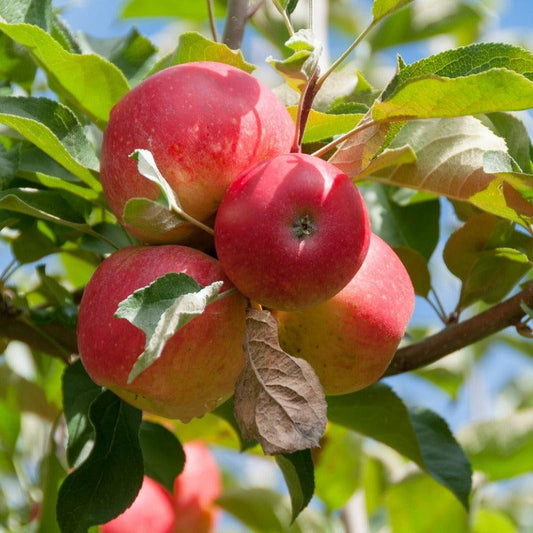 Sold out
Sold out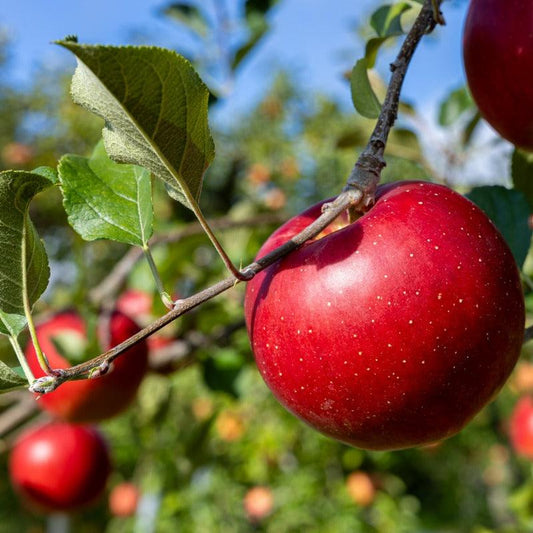 Sold out
Sold out

